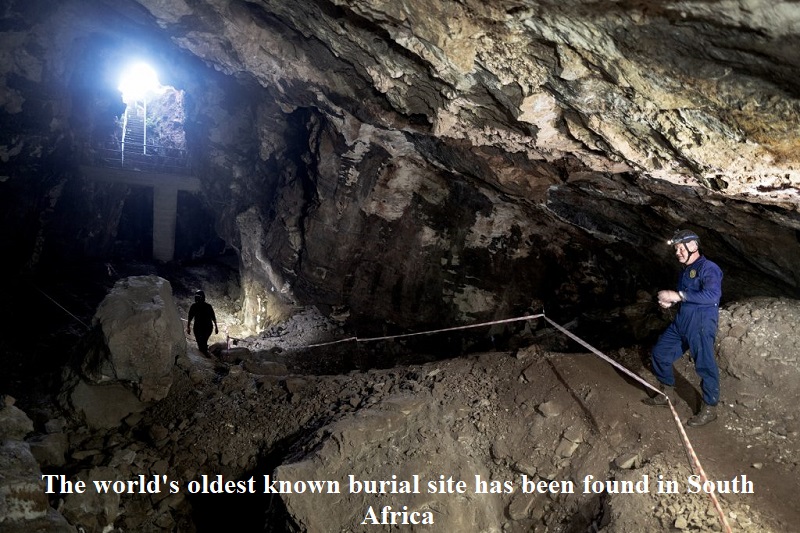
The discovery of the world’s oldest known burial site in South Africa has revealed the remains of a distant relative of humans previously believed to lack complex behavior due to their small brains. A team of paleontologists, led by Lee Berger, made the remarkable find of several specimens of Homo naledi, a Stone Age hominid that was adept at tree-climbing. The burials were located approximately 30 meters underground within a cave system in the Cradle of Humankind, a UNESCO world heritage site near Johannesburg, as reported by the news agency AFP on June 6.
In a series of preprint papers set to be published in eLife, the researchers stated, “These are the most ancient interments yet recorded in the hominin record, earlier than evidence of Homo sapiens interments by at least 100,000 years.” This challenges the current understanding of human evolution, as the previously discovered oldest burials, found in the Middle East and Africa, contained the remains of Homo sapiens and were approximately 100,000 years old. The South African burials, in contrast, date back to at least 200,000 BC.
Homo naledi is a primitive species that represents a transitional stage between apes and modern humans. They had brains approximately the size of oranges and stood around five feet tall. AFP reported that the species had curved fingers and toes, as well as hands and feet capable of tool use and walking. The species was named after the “Rising Star” cave system, where the first bones were discovered in 2013. The researchers also found engravings of geometrical shapes, including a “rough hashtag figure,” on smoothed surfaces of a nearby cave pillar.
Lee Berger, speaking to AFP, mentioned, “That would mean not only are humans not unique in the development of symbolic practices but may not have even invented such behaviors.” This statement is likely to stir controversy in the field of paleontology, as Berger has previously faced accusations of lacking scientific rigor and rushing to conclusions. In 2015, Berger proposed the idea that Homo naledi was capable of more complex behavior than suggested by the size of their brains, which was met with skepticism at the time. Now, he is eager to challenge the prevailing belief.

Post Your Comments